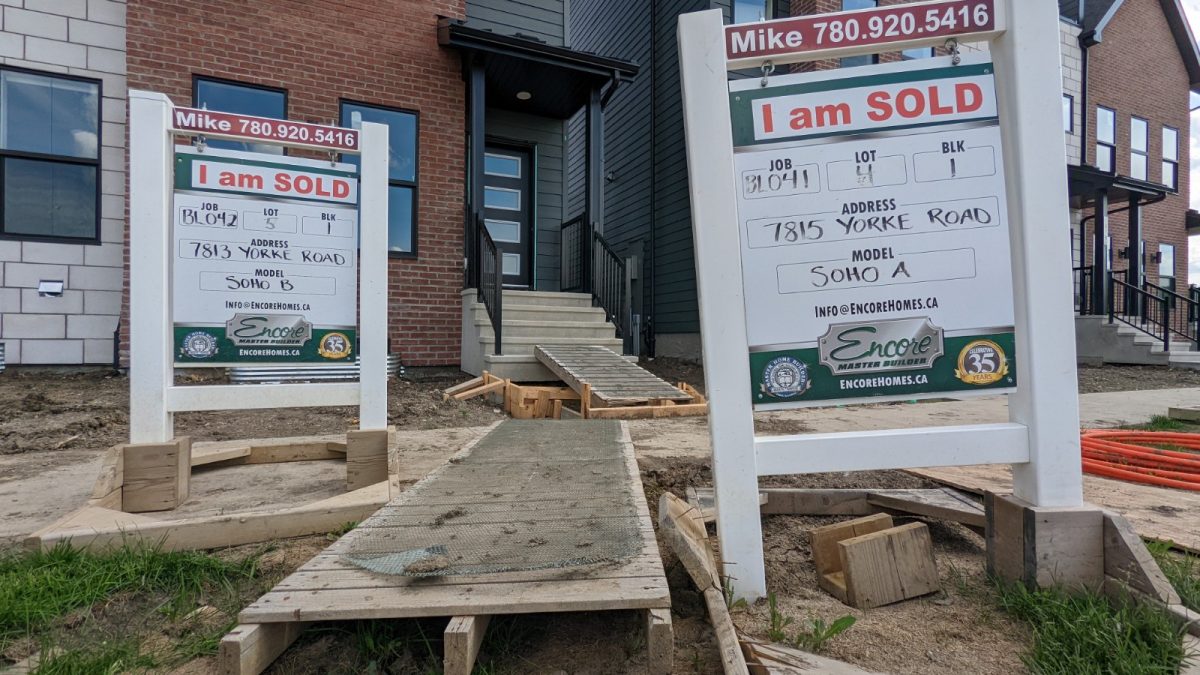The pandemic forced many people to sit at home. And think. And think some more. People thought about what they wanted out of their lives.
And many people in Canada’s most expensive cities came to the same conclusion: It wasn’t worth it to live in a place where mortgage payments or rents ate up way too much of the monthly paycheques. With more people working from home, many recognized they no longer had to live close to their workplaces. They could go forward with more choices in their lives. They could choose to live in places that were more affordable.
Edmonton’s developers and homebuilders are seeing the effects of this mini-boom caused by former Vancouverites and Torontonians who have said “enough” when it comes to the prohibitive housing prices in those cities.
“Edmonton is still the biggest cheap city in Canada; we are seeing tons of people moving here from Ontario,” said Rohit Gupta, in a panel discussion held this spring by the NAIOP Commercial Real Estate Development Association, Edmonton branch. The president of the Rohit Group of Companies says that, even though costs for material and labour are skyrocketing, he doesn’t expect the move-to-Edmonton trend to cool. A house that was $360,000 before the pandemic may cost over $500,000 now, but that’s a bargain to people coming from spots in Ontario or B.C. where seven-digit house prices don’t even earn second glances, despite the cooling markets in those cities.
Emmett Hartfield, owner of real-estate analyst company Intelligence House, said that, despite rising pressures from interest rates, lately it’s been common to see homes for sale in Edmonton “go for $60,000 to $80,000 over asking,” and that many properties don’t last on the market for more than a week. To long-time Edmontonians, that seems like an overheated market; to someone coming from Toronto or Vancouver, it’s still softer than what they’re used to.
The stats back it up. According to Statistics Canada, nearly 60 per cent of all people moving to Alberta in 2020-21 came from either B.C. or Ontario.
Ontario sent 16,849 people to Alberta between July 2020 and June 2021 — about the population of Stony Plain or Camrose. B.C. sent 15,376. By way of comparison, Quebec sent just 2,433. It shows that people in B.C. and Ontario are far more ready — and willing — to make the big move.
Hartfield says rising interest rates will cool housing markets that have been traditionally overheated. But cooling hot markets, especially in Vancouver, just means that prices will hold — and that they’re not going down anytime soon. Plus, there are forces at play that will keep Vancouver’s prices high.
“Remember that Vancouver is a global city; it’s not just Canadians interested in buying there,” Hartfield said. “And Vancouver has no land left. There’s not a lot of room to build. There is endless space in Edmonton. What we are seeing is that if you want to live in a large Canadian city, a place with long-term opportunities, the choices are Calgary and Edmonton.”
Gupta believes that COVID-19 showed Canadians that we have “terrible health infrastructure,” but, with oil prices rebounding, only Alberta’s government — no matter if the Tories or NDP are in charge — will be in the position to do anything about it. He predicts aggressive spending will attract even more migrants in the decade to come.
“Whatever happens in Texas is going to happen in Alberta,” he said.
As for the bidding wars we are seeing in Edmonton, Hartfield doesn’t see a future where that’s commonplace. He believes that, closer to the end of this year, we’ll see the housing frenzy abate. But he thinks we may see interest rates rise in 2023.
“The government has already achieved what it wanted to do, which was to cool off targeted areas, like Toronto.”
Savvy AF. Blunt AF. Edmonton AF.



